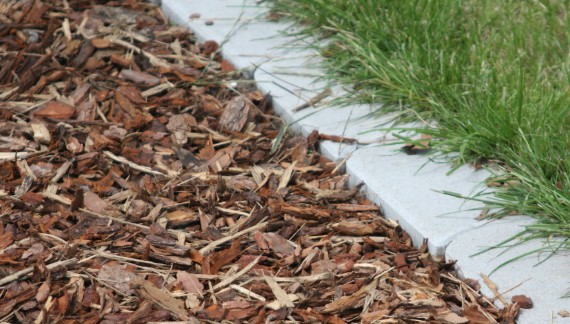Dealing with weeds in Hamilton, ON can be one of the most frustrating aspects of gardening and landscaping. In Hamilton, the unique climate—marked by humid summers and cool winters—can create an environment where weeds thrive. However, one of the most effective and eco-friendly strategies to combat this problem is mulching. This article will explore how mulching can help you stop weeds in their tracks and maintain a healthy garden in Hamilton.
Mulching involves covering the soil with a protective layer of material. This layer can be made from organic materials, such as wood chips, straw, grass clippings, bark, or leaves, or inorganic materials like rubber, gravel, or plastic. The primary purpose of mulch is to retain soil moisture, regulate soil temperature, and suppress weed growth.
One of the main benefits of mulching is its ability to suppress weeds. A thick layer of mulch restricts sunlight from reaching the soil, making it difficult for weed seeds to germinate. As a result, fewer weeds grow, giving your plants a better chance to thrive.
In Hamilton's often dry summers, mulching helps retain moisture in the soil. This is particularly important for newly planted beds or vegetables that require consistent watering. By keeping the soil moist, mulch not only supports plant health but also prevents the need for excessive watering.
Mulch acts as an insulating layer, helping to keep the soil temperature stable. In the heat of summer, it prevents the soil from getting too hot, while in the winter, it offers some protection against extreme cold. This insulation is beneficial for the root systems of your plants.
Organic mulches eventually decompose, adding nutrients back into the soil. This slow-release of nutrients can improve soil health over time, fostering a more vibrant garden ecosystem.
In a region like Hamilton, where rain can cause soil erosion, mulching helps anchor the soil in place. It reduces runoff and allows greater water infiltration, which can be critical for maintaining healthy garden beds.
When selecting mulch, consider the following factors:
Type of Plants: Different plants have varied needs. For instance, vegetable gardens might benefit from straw or grass clippings, while ornamental plants may look better with wood chips or bark.
Aesthetic Appeal: Some mulch materials, like colored rubber or decorative stones, can enhance the visual appeal of your garden.
Cost and Availability: Consider local sources for mulch. Organic materials like straw, leaves, and grass clippings can often be sourced for free or at a low cost.
Prepare the Soil: Before applying mulch, remove any existing weeds from the area. This ensures that you start with a clean slate.
Moisten the Soil: Water the soil before applying mulch to help retain moisture.
Apply the Mulch: Spread a layer of mulch about 2-4 inches thick around plants or garden beds. Be sure to keep mulch a few inches away from plant stems and tree trunks to prevent rot.
Replenish as Needed: Over time, organic mulch will break down and will need to be replenished. Regularly check the thickness and add more as necessary to maintain effectiveness.
While mulching is an excellent weed prevention method, it’s essential to maintain your garden regularly. Monitor for any weed growth that may penetrate through the mulch, and remove any that appear promptly. Additionally, watch for any areas where the mulch may have settled and need fresh material added.
In Hamilton's unique gardening climate, mulching stands out as a sustainable and effective method for combating weeds. By using mulch, not only do you reduce the time and energy spent weeding, but you also improve soil health and plant conditions in your garden. So, roll up your sleeves, grab that mulch, and say goodbye to weeds for good! Your garden will thank you.
